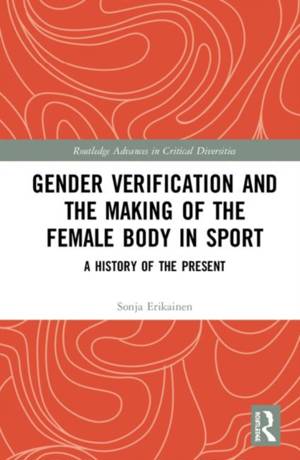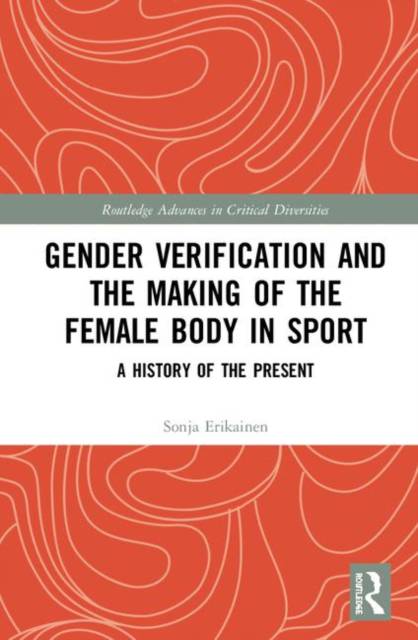
- Retrait gratuit dans votre magasin Club
- 7.000.000 titres dans notre catalogue
- Payer en toute sécurité
- Toujours un magasin près de chez vous
- Retrait gratuit dans votre magasin Club
- 7.000.0000 titres dans notre catalogue
- Payer en toute sécurité
- Toujours un magasin près de chez vous
Gender Verification and the Making of the Female Body in Sport
A History of the Present
Sonja ErikainenDescription
This book critically explores the history of gender verification in international sport, to show how culture, politics, and science come together to produce "femaleness" and, consequently, the female body as we know it.
Tracing gender verification policies and practices in sport since the 1930s till the present, the book shows how and why medical "sex tests" have been used to "verify" women athletes' femaleness, in ways that both reflect and have shaped broader social and scientific ideas about femaleness in the process. Exploring how geopolitics, gender, class and race relations intertwined with scientific ideas about femaleness and womanhood to shape gender verification, the book shows how sports competitions became a battleground where new and old ideas about sex difference collided. By mapping the social, historical, and material instability of sex and gender, it shows why so much investment has been placed in distinguishing femaleness from maleness in sport and beyond.
The book will be of interest to researchers, later-year undergraduate and graduate students in a broad range of areas including gender studies, sports studies, social and historical studies of science and medicine. It will also be relevant to sports policy as it historically and conceptually contextualises gender verification policies.
Spécifications
Parties prenantes
- Auteur(s) :
- Editeur:
Contenu
- Nombre de pages :
- 198
- Langue:
- Anglais
- Collection :
Caractéristiques
- EAN:
- 9780367313012
- Date de parution :
- 21-11-19
- Format:
- Livre relié
- Format numérique:
- Genaaid
- Dimensions :
- 155 mm x 236 mm
- Poids :
- 430 g

Les avis
Nous publions uniquement les avis qui respectent les conditions requises. Consultez nos conditions pour les avis.






